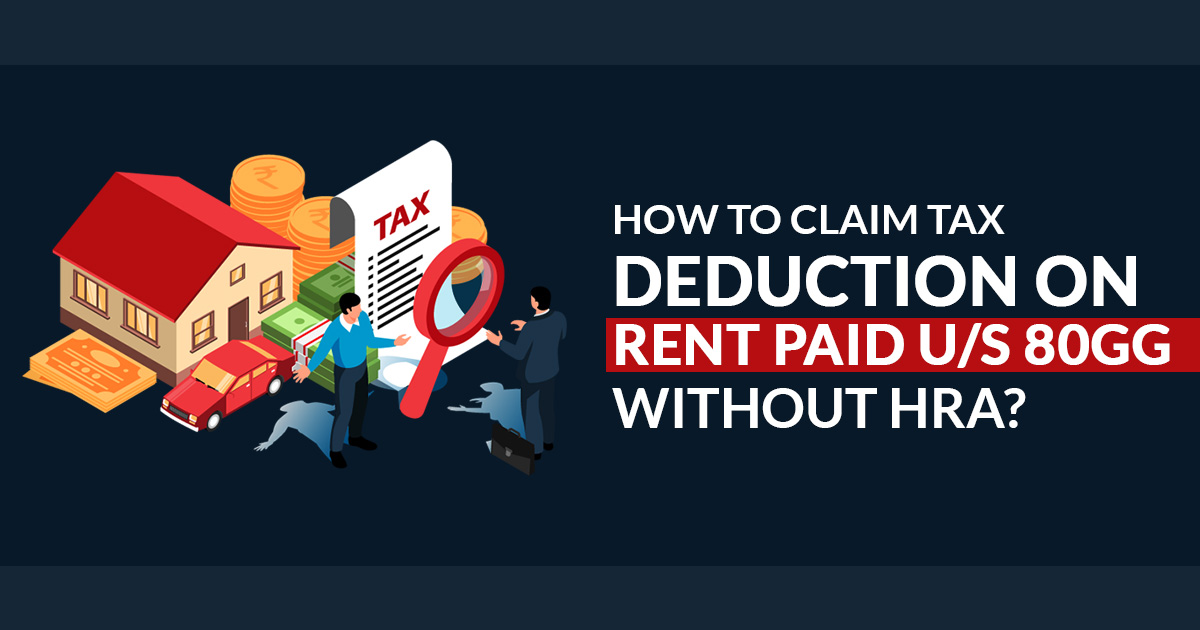
The house rent allowance comes under the salary income of the majority of employees. However, some small and medium-sized firms might provide the “lump sum amount to the employees” excluding any stoppage. For an employee who lives on rent to avail of the claim deduction, HRA must be part of his or her monthly income.
However, the income tax act 1961 gives their employees to claim the deduction towards the furnished rent despite their HRA not being part of their salaries. These employees can avail of the deduction concerning the house rent furnished beneath section 80GG of income tax. Self-employed people will also be part of the same.
Circumstances
To avail of the deduction beneath section 80GG, you must not obtain HRA during any section of the FY. Tarun Kumar, a Delhi-based chartered accountant stated that “The taxpayer claiming exemption of HRA can’t claim a deduction for rent paid under section 80GG,”
Beneath section 80GG the individual availing, the deduction must not be owning any premises in the city of residence. Moreover, there must be no residence in the name of the wife, minor child, or Hindu Undivided Family (HUF) of which the office is situated or the business gets executed. So if you have a family house in the city in which you are working then you should not be able to enjoy the claim.
“Hegde commented that the deduction is allowed to a person who owns a house in any other city different from his occupation, but it shouldn’t be self-occupied or left empty. It should be a let-out property, said Prakash Hegde, a Bengaluru-based chartered accountant. This restriction is limited to the assessees only. The family members can own a property in another city,”
The assessee needs to furnish the form 10BA only then they shall be enabled to avail of this kind of deduction. The same is the declaration furnished by the person that the situations of the section shall be met. The assessee who has not chosen the other option or for the latest tax regime then he will not be able to avail of the deduction.
Method to Compute
With the help of the formula, the deduction is to be computed. The amount of deduction under this act will be less than the mentioned three.
- The rent paid in excess of 10% of total income,
- 25% of the total income,
- a maximum of ₹5,000 per month
Rs 60k is the highest deduction which is permitted in the year. The total income for the subject of calculation needs to acknowledge the post to claim all the deductions from the overall income of the assessee.
Read Also: How to Claim HRA While Filing Your ITR?
For instance, if the total income of the individual is Rs 15 lakh for a year and he is claiming deductions for Rs 2 lakh beneath several other sections which consists of 80C, then Rs 13 lakh will be acknowledged as the cumulative income posted in context to him. So, if he is paying rent of Rs 12,000 per month ( ₹240,000 annual rent), then he will be able to avail of any of the three mentioned options.
- a) ₹110,000 (10% of ₹13 lakh minus ₹2,40,000),
- b) ₹60,000,
- c) ₹325,000.
Hence, the most inexpensive amount is Rs 60,000 which he shall be able to avail beneath Section 80GG.